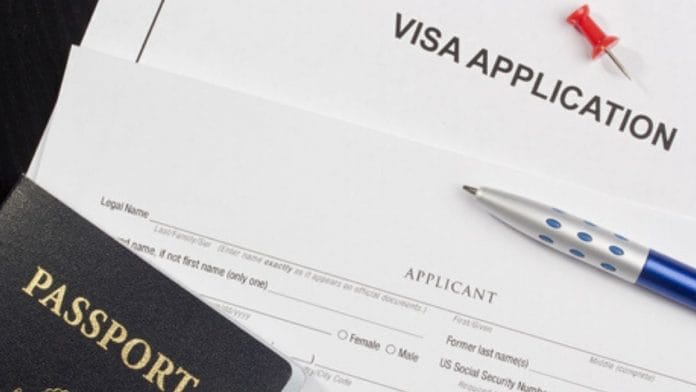New Delhi: India Thursday asked the US to “increase predictability” and “minimise inconvenience” on its visa regime, a day after Washington proposed to scrap the computerised lottery system for H-1B visas and replace it with a wage-level-based selection process.
“We are engaged with the US government for increasing predictability in the visa regime and to minimise the inconvenience being faced by those in the US or those who need to travel to the US for bonafide reasons,” said Anurag Srivastava, spokesperson, Ministry of External Affairs (MEA), at a media briefing Thursday.
Srivastava said New Delhi will “continue to monitor developments on this issue”.
“People-to-people relationship is an important foundation of the special relationship between India and the US. In our engagements, we have emphasised that this has been a mutually-beneficial partnership which should be nurtured,” the MEA spokesperson added.
The Trump administration had issued a notification about the new system Wednesday and gave stakeholders 30 days to respond. The move, if finalised, will adversely impact Indian IT professionals, the largest consumers of this non-immigrant visa.
Also read: Trump’s ban on H-1B, L-1 visas for foreign workers cost $100 billion, says report
Aimed at protecting ‘American workers’
According to the US Department of Homeland Security (DHS), the proposal to scrap the computerised lottery system for H-1B visas is aimed at protecting “American workers while strengthening the economy”.
“The H-1B program is often exploited and abused by US employers, and their US clients, primarily seeking to hire foreign workers and pay lower wages,” it added.
Earlier this month, the Trump administration had announced new restrictions on the country’s H-1B non-immigrant visa programme. The objective, again, was to protect American workers by changing the definition of specialty occupation.
In June, US President Donald Trump had signed an executive order temporarily banning issuance of fresh H-1B and L-1 visas till 31 December. This has reportedly resulted in a loss of about $100 billion to companies and will have long-term negative impact on American firms.
Also read: Trump’s H-1B visa suspension became political as it’s election time in US, says envoy Sandhu






